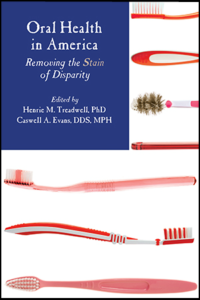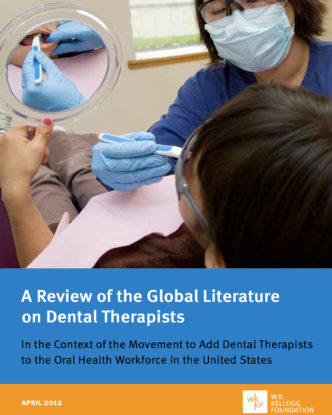 “Oral Health in America: Removing the Stain of Disparity,” explores a wide range of issues related to oral health inequities, their impacts and solutions. Despite technical advances in the field, inequities persist in the U.S. Millions of children, older adults, incarcerated individuals and those with disabilities and health conditions cannot access quality oral healthcare because either no provider is available or the cost is prohibitive.
“Oral Health in America: Removing the Stain of Disparity,” explores a wide range of issues related to oral health inequities, their impacts and solutions. Despite technical advances in the field, inequities persist in the U.S. Millions of children, older adults, incarcerated individuals and those with disabilities and health conditions cannot access quality oral healthcare because either no provider is available or the cost is prohibitive.
Funded by the W.K. Kellogg Foundation and produced in partnership with Community Voices: Healthcare for the Underserved, a division of the Satcher Health Leadership Institute at Morehouse School of Medicine, the book advocates for health equity.
“Any consideration of general health would be incomplete without inclusion of oral health,” note editors Henrie M. Treadwell, PhD, research professor at the Morehouse School of Medicine, and Caswell A. Evans, DDS, MPH, associate dean for prevention and public health sciences at the University of Illinois at Chicago.
“The current oral healthcare paradigm endorsed by professional organizations in this country is inadequate and broken,” say the editors. “It advances the profession, not the individuals in pain, who are invisible to the systems that should be providing for their care. Oral health is a social justice issue.”
The authors of “Oral Health in America” assert that inequities stem from lack of accessible care, limited workforce diversity, limited and nonexistent coverage and affordability, poor disease prevention measures and, perhaps most significant, social determinants of health.
Chapters offer education, training, partnership and systemic solutions, with a focus on dental therapy as key to improving oral health and achieving culturally competent and racially diverse oral health equity for all. The book highlights changes and challenges in dental education and its ability to prepare an oral health workforce with appropriate diversity, capacity and flexibility to address oral health inequities for underserved populations.
“Communities must acknowledge the role that race and ethnicity has played in oral health disparities,” says La June Montgomery Tabron, president and CEO of the W.K. Kellogg Foundation. “Our hope is that this book sparks conversations that help to heal those wounds and move forward to implement workforce strategies — like dental therapy — to provide much-needed care to patients.”
ISBN: 978-0-87553-305-6, softcover, 400 pages, list price: $30, plus handling (APHA member price: $21). To order, call toll-free 888-320-APHA, email apha@pbd.com or visit www.aphabookstore.org. Review copy requests should be sent by email to David Hartogs.



